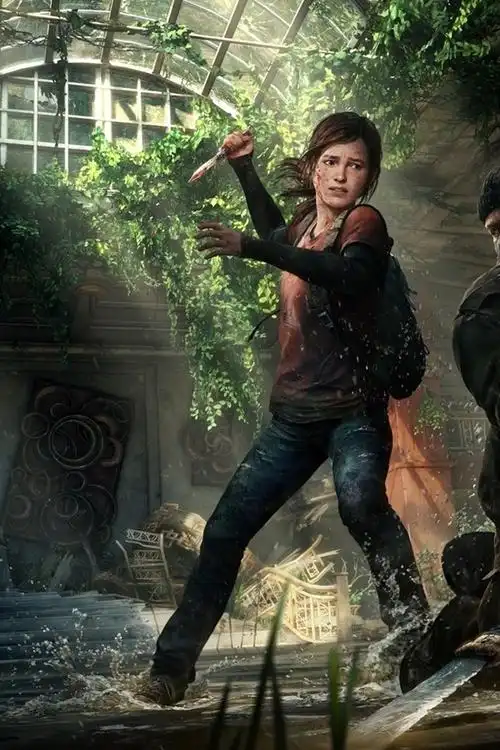Standout Moments from Recent Deep Game News
The video game industry is a relentless engine of innovation, hype, and discourse. Just when you think things might quiet down, a new wave of announcements, releases, and controversies crashes onto the shore. Cutting through the noise requires a keen eye for the moments that truly matter—the ones that signal a shift, break new ground, or simply capture our collective imagination. From the boardrooms of major acquisitions to the creative breakthroughs in indie studios, here are the standout moments from recent deep game news that are reshaping the interactive entertainment landscape.
1. The Dawn of a New Era: Microsoft's Activision Blizzard Saga Concludes
After nearly two years of regulatory battles, speculation, and heated debate, Microsoft's monumental $68.7 billion acquisition of Activision Blizzard finally closed. This isn't just a headline; it's a tectonic shift in the industry's power structure. The moment the deal was finalized, the gaming world held its breath, waiting to see what the new behemoth would do first.
The immediate standout moment followed swiftly: the surprise announcement that iconic franchises like Call of Duty, Diablo, and Overwatch would begin arriving on Xbox Game Pass. This move instantly supercharged the value proposition of the subscription service, validating Microsoft's core strategy of content over hardware. But the deeper implications are even more profound. It grants Microsoft control over a huge swath of gaming's most valuable IP, from mobile (King's Candy Crush) to PC and console. The long-term impact on exclusivity, labor practices within the newly acquired studios, and the competitive response from Sony and Nintendo will define the next console generation. This acquisition is the story that will have a thousand follow-ups.
2. Generative AI Stirs the Creative Pot
While AI has been part of game development for decades, the recent explosion of generative AI tools has sparked one of the most contentious and fascinating debates in years. The standout moment was the unveiling of NVIDIA's ACE (Avatar Cloud Engine) for Games tech demo. This demonstration showed a fully AI-driven non-playable character (NPC) in a cyberpunk setting, capable of generating dynamic, context-aware dialogue and emotions in real-time, rather than relying on pre-scripted lines.
This moment was significant because it moved the conversation from theory to a tangible, albeit early, application. It promises worlds where every interaction is unique, but it also raises critical questions about the future of voice acting, narrative design, and the very soul of game storytelling. Is it a tool to empower developers or a threat to creative jobs? This single demo became the focal point for a much larger discussion about ethics, copyright, and the future of creativity in game development, ensuring it's a debate that will only intensify.

3. The Indie Counterpoint: "Hades II" and the Power of the Technical Test
In an industry often dominated by corporate maneuvering, Supergiant Games provided a masterclass in community-focused development. The standout moment wasn't a flashy trailer at a major show, but a simple, humble blog post announcing the sudden launch of the Hades II Technical Test.
This move was genius. Instead of a traditional closed beta shrouded in NDAs, Supergiant invited a limited number of players to openly share their experiences, stream gameplay, and provide feedback. It demonstrated immense confidence in their product and immense respect for their community. The outpouring of positive reactions and constructive feedback flooded social media, creating a wave of organic, authentic hype that money can't buy. It was a moment that highlighted the stark contrast between the top-down marketing of AAA giants and the transparent, player-driven approach that can make indie studios so beloved. It wasn't just a test; it was a celebration of the game's development, shared directly with the fans.
4. The "Holy Grail" of Emulation: The Ryujinx Switch Emulator Breakthrough
For emulation enthusiasts, recent news brought a truly watershed moment. The team behind the Ryujinx Nintendo Switch emulator announced a monumental leap: the implementation of a custom "Resolution Scaling" feature. This isn't just a minor upgrade; it allows players to run classic Switch titles like The Legend of Zelda: Tears of the Kingdom at silky-smooth 4K resolution and 60 frames per second, far surpassing the hardware limitations of the original console.
This achievement is a technical marvel. It represents the pinnacle of preservation and enhancement, allowing games to be experienced in a new light long after their original hardware becomes obsolete. The moment videos of a hyper-detailed, buttery-smooth Hyrule hit the internet, it was clear that emulation had entered a new era. It challenges the very notion of platform exclusivity and raises important questions about the legality and ethics of preservation, all while showcasing the incredible passion and talent of the open-source development community.
5. The Unlikely Triumph of "Helldivers 2" and the Live-Service Lesson
In a market oversaturated with failed live-service games, the explosive success of Helldivers 2 stands as one of the most surprising and instructive moments of the year. The moment it became clear that Arrowhead Game Studios had a genuine hit on their hands was when server capacity became the biggest news story about the game. The developers struggled to keep up with the sheer volume of players eager to "spread Managed Democracy" for Super Earth.
Its success wasn't born from a massive marketing budget but from a perfectly executed core concept: unpretentious, chaotic fun that is best shared with friends. Its PvE (Player vs. Environment) focus and satirical tone provided a refreshing alternative to the often-toxic competitive shooter space. The standout moment was watching a community spontaneously organize on Reddit and Discord to coordinate galactic assaults, creating emergent narratives and inside jokes that extended far beyond the game itself. Helldivers 2 proved that a live-service model can thrive not through predatory monetization, but through pure, unadulterated gameplay joy and a developers who actively communicate with and listen to their player base.
These moments, from corporate mega-deals to technical and communal breakthroughs, illustrate an industry in constant, rapid evolution. They remind us that gaming's future is being written not in a single place, but in boardrooms, in indie studios, in open-source projects, and in the vibrant communities that spring up around a great idea. The only constant is change, and the next standout moment is always just around the corner.


















